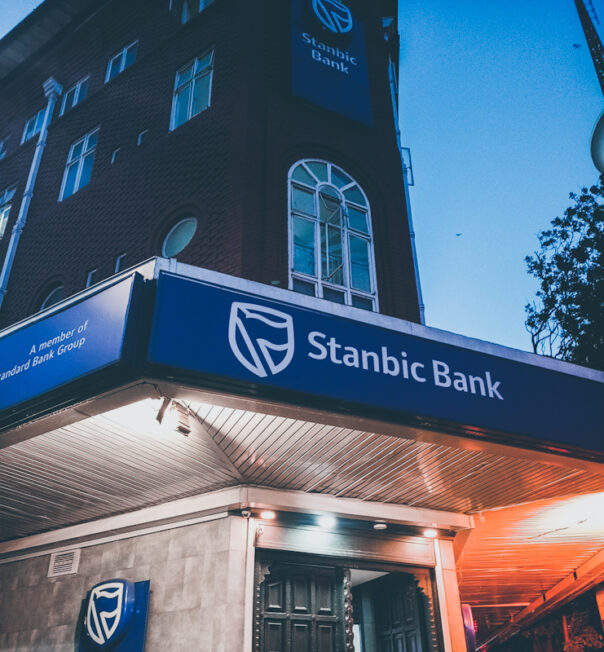Stanbic Bank’s 2024 Sustainability Report, themed “Deepening Impact—Building a Sustainable Future,” highlights the bank’s transformative role in fostering environmental stewardship, social inclusion, and economic empowerment across Kenya and South Sudan.
By integrating sustainability into its core operations, Stanbic is not only advancing responsible banking but also catalysing measurable, positive change in the communities it serves.
Priscilla Were, Head of Sustainability, reflected on the collective effort behind Stanbic’s sustainability achievements: “Sustainability is a shared journey. I extend gratitude to our employees, partners, clients, and communities for their collaboration. Together, we are unlocking opportunities for an equitable and low-carbon future.”
Leading Kenya Towards a Greener Tomorrow
Stanbic Bank’s environmental initiatives in 2024 demonstrate a robust commitment to combating climate change and promoting sustainable resource management.
The bank planted 80,000 trees in 2024, contributing to a cumulative total of 131,960 trees since the program’s inception. This large-scale reforestation effort supports biodiversity, carbon sequestration, and ecosystem restoration.
Moreover, the bank achieved an impressive 99.9% waste recycling rate, reflecting its dedication to minimising environmental impact through efficient resource use and waste management.
A key highlight is Stanbic’s financing of over KShs. 500 million in solar energy projects, positioning the bank as a leader in Kenya’s clean energy transition.
Joshua Oigara, CBS, Chief Executive Officer of Stanbic Bank Kenya & South Sudan, emphasised the significance of these efforts:
“One of the challenges we face is how to raise programs to become scalable and impactful. We continue to build capabilities, especially in financing renewable energies and clean power. Today, thanks to our investments, we power close to 92-93% green energy.”
Oigara further underscored the bank’s environmental partnerships:
“We spend considerable time appraising and assessing investments to increase our social impact across markets. Our partnerships in water conservation and ecosystem management demonstrate our commitment to environmental sustainability.”
These initiatives reflect Stanbic’s holistic approach to environmental stewardship, combining direct action with strategic financing to support Kenya’s green growth agenda.
Empowering Communities Through Financial and Digital Access
Stanbic Bank’s social inclusion agenda focuses on expanding access to financial services and digital literacy, particularly for underserved populations. In 2024, the bank trained 7,741 individuals in digital literacy, equipping them with essential skills to participate in the digital economy.
The bank’s workforce diversity is notable, with 51.4% female employees, reflecting its commitment to gender equality and inclusive employment practices.
Financial inclusion remains a cornerstone of Stanbic’s social impact. The bank supported over 110,000 micro and small entrepreneurs, with a special focus on women-led businesses, through the disbursement of KShs. 378 million in DADA loans—a program designed to empower female entrepreneurs with affordable financing.
Joshua Oigara highlighted the critical role of financial inclusion in economic transformation:
“Financial inclusion is at the heart of economic transformation. We have provided access to finance for over 110,000 micro and small entrepreneurs, enabling dignity and economic empowerment through digital solutions. Our mortgage portfolio crossed KShs. 2 billion last year, supporting homeownership and creating millions in value for communities.”
These efforts demonstrate Stanbic’s dedication to fostering equitable economic opportunities and building resilient communities.

Driving Responsible Banking and Investment
Stanbic Bank’s commitment to economic empowerment is anchored in responsible banking practices and strategic investments aligned with Environmental, Social, and Governance (ESG) principles.
In 2024, the bank applied rigorous ESG screening to all lending facilities exceeding USD 1 million, ensuring that financing decisions support sustainable and ethical business practices.
The bank invested KShs. 1.8 billion in affordable housing projects, addressing critical housing shortages and promoting social welfare. Additionally, it facilitated KShs. 76 billion in trade finance, enabling business growth and regional economic integration.
Oigara elaborated on the bank’s responsible banking framework:
“In 2024, we strengthened our commitment to responsible banking by applying rigorous ESG screening to all lending facilities exceeding USD 1 million. This ensures that our financing decisions align with our sustainability principles and support environmentally and socially responsible business practices. We continue to assess compliance risks through a robust framework that reinforces our dedication to ethical conduct and good governance.”
Through these measures, Stanbic is fostering sustainable economic development while mitigating environmental and social risks.
Catalysing Sustainable Growth Across Africa
Stanbic Bank is a key player in driving sustainable investment across the African continent. The bank has committed $16 billion to the Africa Green Transportation Initiative, which aims to revolutionise transportation infrastructure with low-carbon technologies.
Of this, $1 billion is earmarked for Kenya over the next three years, underscoring Stanbic’s leadership in supporting green industrial growth.
Oigara expressed pride in the bank’s role:
“Stanbic is proud to be the single largest citizen investor in the Africa Green Transportation Initiative, committing over $16 billion across the continent in the next three years, with a $1 billion commitment in Kenya alone. This reflects our vision to catalyse sustainable investment and industrial growth.”
This initiative aligns with Kenya’s broader sustainability goals and positions Stanbic as a catalyst for green economic transformation in the region.

The Financial Sector’s Role in Sustainable Development
Stanbic Bank’s CEO Joshua Oigara concluded the report by emphasising the broader societal impact of the financial sector:
“Building businesses is a delicate and complex journey, but it offers a rich opportunity to catalyse societal transformation. The financial sector plays a crucial role in capital allocation, and we are committed to sharpening our impact measurement and reporting to drive transparency and accountability.”
Supporting this vision, CS Lee Kinyanjui highlighted the multidimensional nature of sustainability:
“Sustainability goes beyond the environment—it encompasses economic growth, social equity, and international cooperation, all of which are critical pillars of Kenya’s sustainable development.”
Together, these perspectives underscore Stanbic Bank’s holistic approach to sustainability—one that integrates environmental care, social progress, and economic resilience to build a sustainable future for Kenya and beyond.




